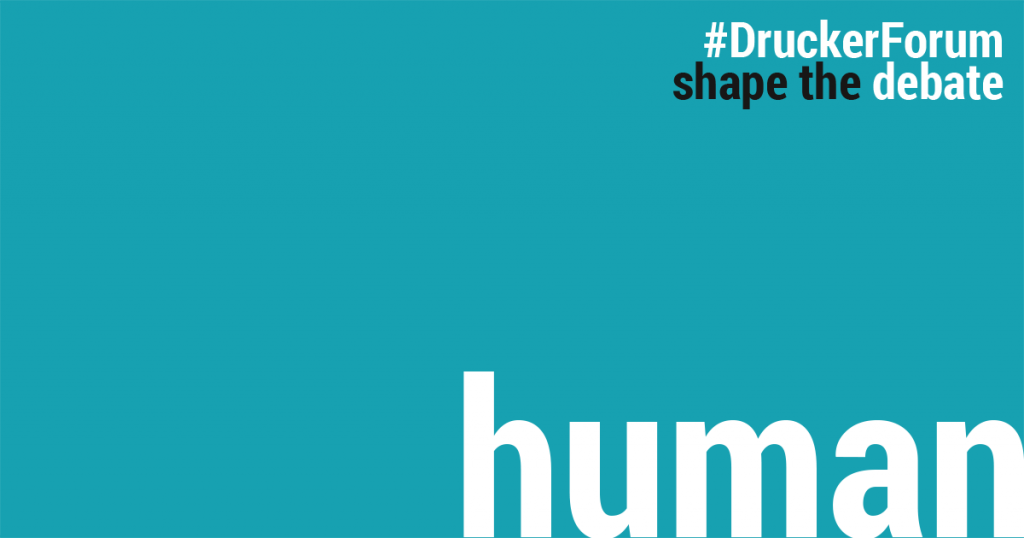
The limits to management are grounded in two empirical facts: First, the existence of the margin of freedom individuals have in the choice of their day to day behavior. Second, the subjective and interactive intelligence (rationality) with which individuals use their margin of freedom in the service of what they consider to be their “interest”.
At the level of the individual, this margin of freedom might seem negligible. But in collective action, it interacts with all the margins of freedom of all the other stakeholders in the action. The aggregation of all these margins of freedom amplifies the overall impact, and ends up creating the unpredictable results of our structures for collective action that derails so many projects which create interdependence and therefore require cooperation.
The unpredictability of the behavior of humans, as well as the surprising results of their aggregation, are an undeniable empirical reality. However, instead of facing up to it, managerial thinking in the public as well as in the private domain, has attempted to get around it by trying to produce models in which individual behavior becomes predictable. From F.W. Taylor’s “homo economicus” and his scientifically grounded pay-schemes, to the “homo socialis” and his “need to belong” of the human relations movement of the 1940s and 1950s, from Maslow’s (1954) motivational pyramid to Argyris’ “need for self-realization” in the late 1960s, countless attempts to render human behavior more predictable by modelling individual motivations have ultimately ended in failure. Introducing the notion of “complex man”, organizational psychology has recognized this failure and accepted the irreducible multiplicity and ambiguity of human motivations in the real world, implicitly acknowledging the autonomy of individuals in relation to their “needs” or psychological motivations. Thus “complex man” brings us back to the starting point: his or her behavior is basically opaque and unpredictable.
The cognitive perspective proposed by behavioral economics offers no way out of this dilemma. First, it reasons as if individuals were at all times the slaves of their cognitive biases, just as organizational psychology of the 1960s (and even today) considered individuals to be the slaves of their (most often unconscious) needs. Moreover, behavioral economics is based on an a priori normative and very disputable model which presumes the ability to know and define in advance the « real » interest of individuals, and therefore the (good) rationality of reference at any moment and whatever the circumstances.
Neither the idea of economic rationality and utilitarian calculation, nor the use of the notion of “psychological needs” or “cultural characteristics”, nor the recourse to group identities (of race, of gender, of sexual orientation and others), nor the cognitive perspective of behavioral economics offer a credible way to anticipate the behavior of individuals engaged in collective action. Looking at the problem from the angle of the individual leads nowhere, precisely because the way in which individuals use their margin of freedom is never solely a problem of the individual. By its interaction with the margins of freedom of all the other stakeholders, the individual’s margin of freedom is, so to say, “socialized“ and thus beyond the strict control of any individual. In this sense, it is a social fact, the inseparable product of the interaction dynamics and their aggregation (composition) effects which emerge in a context of cooperative action with its always specific constraints.
As a result, the interactive dynamics as well as their composition effects with their radical unpredictability are at the heart of human cooperation. They directly impact the trajectories of the structures of collective action as well as the results of all managerial initiatives. When trying to monitor structures of collective action, managerial action has to take that uncertainty into account, meaning It has to accept the ubiquity of unintended and often ”perverse” consequences that are contrary to proclaimed intentions or objectives. Structures of collective action are never simple instruments in the service of objectives, however thought through, well intentioned and clearly explained they might be. They are instruments for sure, but recalcitrant instruments, to paraphrase Philip Selznick. They develop their own dynamics which can never be completely anticipated. One can merely observe them and try, whenever necessary, to rectify them after the fact.
Recognition of that empirical reality leads us to acknowledge the limits of managerial action and forces us to change its modes of reasoning and action. Management has at last to go beyond the mechanical understanding of human cooperation which to this day seems to inspire managerial thinking and explains why it tends to adopt a strictly constructionist perspective. Such a perspective reduces organizational management to an exclusively technical activity reliant on a box of standard managerial tools (different kinds of organization charts, processes, training programs, managerial recipes and “best practices”). These tools are defined without reference to any specific context and abstracted from the original conditions within which they have been created and their list is constantly enriched by the extrapolation of solutions that have been successful here or there. This produces a wholly abstract view of management in which managers are led to think in decontextualized models and tools (labelled best practices) that can be readily transposed as solutions from one context to the next.
The usefulness of this thinking is limited by its increasing distance from the day-to-day practice of management, which is political, not technical. To go beyond these limitations, managerial thinking has to step outside of its narrow technical perspective and to accept the profoundly political nature of management. None of the great thinkers of management, from Chester Barnard to Peter Drucker, would contradict me on that point. Management is at the heart of everybody’s social life. It is the activity which consists, at the different levels of society, of inventing and making acceptable the unavoidable trade-offs that might solve the tensions and dilemmas inherent in human cooperation in concrete situations. As such it is an essential modality of social action in our societies. As Thomas Sowell has stated repeatedly: “There are no solutions, only trade-offs”. And trade-offs can only be defined in a contextualized and ad hoc manner.
About the Author:
Erhard Friedberg is Professor Emeritus of sociology and former director of the Master of Public Affairs at Sciences Po, Paris
This article is one in the “shape the debate” series relating to the 13th Global Peter Drucker Forum, under the theme “The Human Imperative” on November 10 + 17 (digital) and 18 + 19 (in person), 2021.
#DruckerForum

